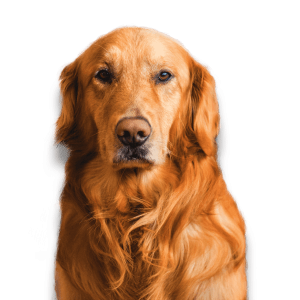Why is it important?
It's always worrying when your dog has to come in for an operation - but it's really useful to know what will happen and how to prepare for it! In this guide, we'll explain what will happen, what the options are, how best to prepare your dog, and how to help them recover afterwards. If your dog is coming in for an emergency operation, then the preparation bit isn't so important (if it's an emergency, we'll work with whatever state they're in!). However, most operations are either elective (in other words, you choose to have it done, like neutering) or at least pre-booked (like orthopaedic surgery).
(1) Starve your dog!
If their stomach is full of food, there's a high risk they'll vomit under anaesthesia, which is not only messy but potentially dangerous. We would usually recommend that dogs have no food after 8pm the night before, and no fluids after midnight (if this doesn't apply to your dog the vet will tell you!). For unweaned puppies, however, it is very risky to starve them for this long, so we recommend checking with one of the vets or nurses.
(2) Get them clean
There's nothing worse than having to remove matted hair, mud and brambles from a dog before an operation can be performed - and it makes it REALLY hard to keep the site sterile too! Even if it's just running the hosepipe over them if they're really muddy, it's better than nothing... For some operations, the practice may recommend bathing in an antiseptic skin disinfectant - talk to the vet or the nurse when booking in if you think this might be necessary.
(3) Remember to tell the practice about any medical history
Especially if it's something we might not know (like episodes of vomiting recently, something that happened at a previous vets, or any odd reactions to medicines). Although they'll probably have it on the records anyway, it's much safer to double check...
(4) Think about blood tests
Most practices offer pre-operative blood tests to all dogs undergoing surgery. If your dog is more than 7 years old, we strongly recommend it, as it can pick up problems that you don't know about, such as kidney or liver issues that might affect the surgery.
(5) Remember to ask any questions
BEFORE you sign the consent form and your dog is admitted - because there may not be time afterwards in a busy surgery.
When will they come home?
After the operation is completed, vets will usually keep your dog in for a few hours, or possibly overnight, until they're ready to go home. This does NOT, however, mean that they have fully recovered!
(6) Look after them once they get home
Most dogs will want to go to their bed and sleep, but some may still be a little wobbly and struggle to get around normally. It is not uncommon for dogs to develop diarrhoea in the 24 hours after an operation, so be prepared... As a result, we recommend offering a light meal of boiled chicken or fish and rice, or a commercial intestinal diet, on the night after the operation and possibly the next morning. Then they can go back onto their normal diet.
(7) Your dog will have been sent home with medications and instructions
Follow them! The medications prescribed are usually painkillers and, sometimes, antibiotics, both of which can be potentially dangerous if you don't follow the instructions. In addition, make a note of any recheck times - the vets will usually want to see them again in 3 or 4 days to check all is well, and then in 10-14 days to take any stitches out. Don't forget!
In conclusion...
The vets will walk you through every step of the way, but if there's something you don't understand, or you're at all worried about your dog - call and ask!


